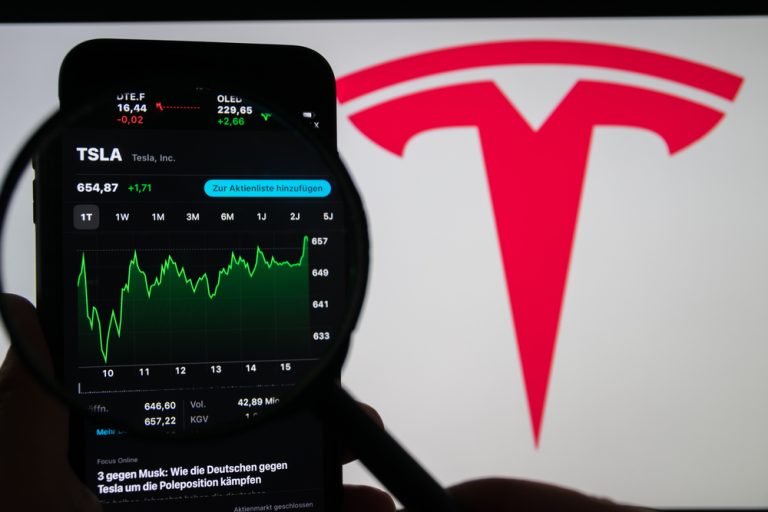Tesla (TSLA) pledged a return to growth in 2025 after reporting disappointing Q4 2024 results, capping off a year with 1% revenue growth and a sharp decline in profits. On the earnings call, CEO Elon Musk announced that unsupervised Full Self-Driving (FSD) will launch in Austin, Texas, in June, with a nationwide rollout by the end of 2025.
Shares of Tesla jumped nearly 4% in early trading Thursday as investors focused on the company’s future outlook despite the weak quarter.
Q4 Earnings Miss Estimates
For the fourth quarter, Tesla reported revenue of $25.7 billion, missing Wall Street expectations of $27.2 billion. Adjusted EPS came in at $0.73, slightly below the $0.75 analysts had forecast.
- Full-year 2024 revenue: $97.7 billion (+1% YoY)
- Operating income: $1.58 billion (-23% YoY)
- Adjusted net income: $2.6 billion (+3% YoY)
- Total auto revenue: -8% in Q4, -6% for the full year
Tesla cited increased AI and R&D expenses and lower average selling prices as key factors impacting profitability.
Production and Delivery Struggles
Auto production fell 7% in Q4, while deliveries rose just 2%. Tesla delivered 1.78 million vehicles in 2024, marking its first-ever year-over-year decline as new competition and global economic headwinds weighed on demand.
Looking ahead, Tesla reaffirmed its plans for new models and next-gen production but warned that expected cost reductions may be lower than previously anticipated.
Key 2025 Initiatives
- New Model Y rollout: Temporary factory shutdowns expected
- Affordable EVs: Production starting in H1 2025
- Cybercab robotaxi: Volume production in 2026
- FSD expansion: Europe and China launches planned
- Energy storage: Expected to grow 50% YoY
Despite ongoing challenges, Wedbush analyst Dan Ives sees FSD expansion as a major catalyst for Tesla bulls. “Unsupervised FSD will be a game-changer,” he wrote.
Elon Musk on US Industrial Policy
During the call, Musk addressed his influence in the Trump administration, emphasizing a shift toward revitalizing US manufacturing. “We need to make manufacturing cool again in America,” he said.
While Tesla’s stock benefited from Trump’s election, analysts remain cautious about the company’s near-term growth trajectory. Morgan Stanley’s Adam Jonas noted that Tesla’s guidance lacked detail, with no mention of the previously expected 20%-30% volume growth for 2025.
As Tesla moves forward, its success will depend on the scalability of its FSD technology, new vehicle launches, and the broader EV market recovery.


